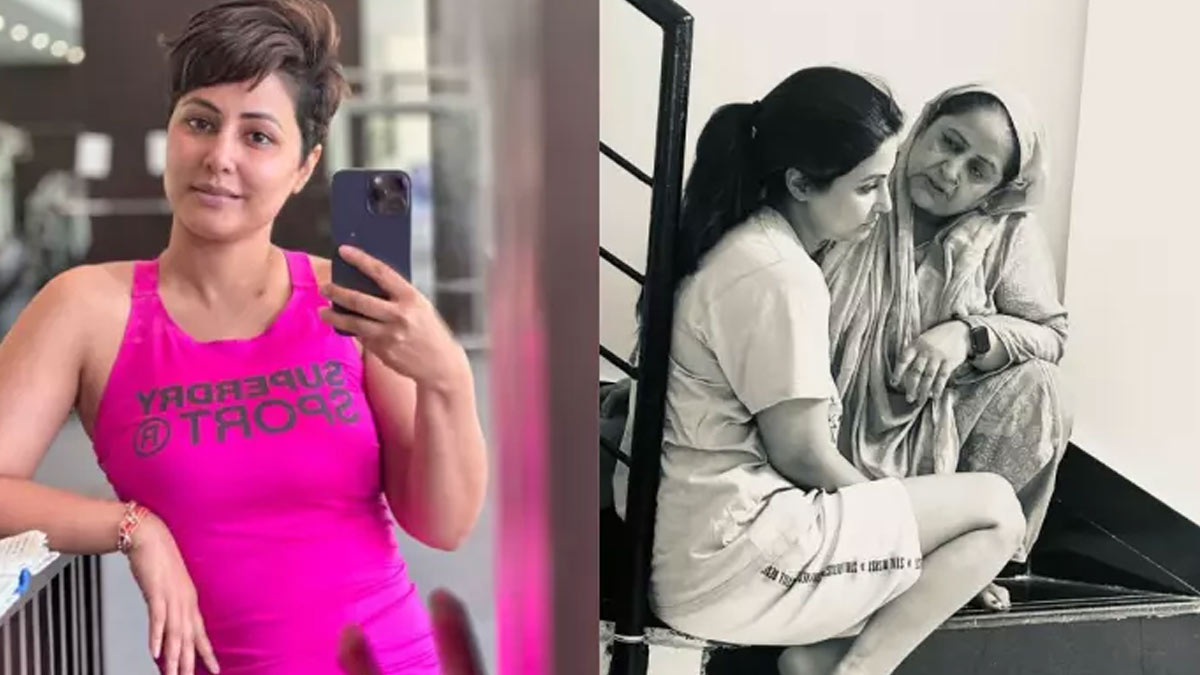
Hina Khan, a renowned actress, has recently been diagnosed with Stage 3 breast cancer. Her journey has been a public one, documented meticulously on social media, giving a face to the struggle many face silently. In a heartwarming and deeply moving post, Hina shared her mother’s reaction to the devastating news, highlighting the profound strength and resilience of maternal love. This piece not only sheds light on Hina’s experience but also provides guidance for parents coping with a child’s cancer diagnosis.
Table of Content:-
A Mother’s Unwavering Support
In a recent Instagram post, Hina Khan shared a poignant series of photographs where she is seen embracing her mother tightly. The caption encapsulated the essence of a mother’s boundless love and capacity to endure pain for her child’s sake. Hina wrote, "A mother's heart can consume an ocean of sorrow and pain to provide shelter, love, and comfort to her children." She further described her mother's inexplicable shock upon learning about the diagnosis but also her incredible strength to comfort and support Hina despite her own world falling apart.
View this post on Instagram
The Reality of the Diagnosis
Earlier this month, Hina also posted a video showing her transition from a glamorous award show to her first chemotherapy session. The video starkly contrasts the glitz and glamour of the red carpet with the harsh reality of cancer treatment. This transparency in sharing her journey has been a source of inspiration and strength for many, shedding light on the harsh realities of cancer treatment while maintaining hope and determination.
Also Read: Kris Jenner To Undergo Hysterectomy After Ovary Tumor Diagnosis; Side Effects Of The Procedure
Common Reactions to a Child's Cancer Diagnosis
The news of a child's cancer diagnosis is a life-altering event for any parent. Common initial reactions include shock, disbelief, denial, fear, anxiety, guilt, sadness, depression, anger, and a sense of being overwhelmed. These emotions are all normal and valid. Each parent’s reaction is unique, and it is essential to acknowledge and accept these feelings as part of the coping process.
.jpg)
Strategies for Coping with the Diagnosis
- Seek Support: Utilize the support of social workers, counsellors, nurses, psychologists, and doctors. These professionals are trained to help families navigate the emotional and logistical challenges of a cancer diagnosis.
- Lean on Loved Ones: Family and friends can provide invaluable support, whether it's through emotional comfort or practical help with daily tasks and household needs.
- Stress-Relief Techniques: Engage in activities that reduce anxiety and tension, such as exercising, listening to music, or keeping a journal.
- Spiritual Practices: Finding strength in religious beliefs or spiritual practices can provide comfort and guidance. Talking to religious leaders can also be helpful.
- Open Communication: Discuss fears and anxieties with the cancer treatment team. They can provide clarity and reassurance, which can significantly reduce stress.
- Self-Care: It is crucial for parents to take care of themselves by eating well, getting adequate rest, and taking breaks when needed.
- Expressing Emotions: Find healthy ways to express anger and frustration, whether through private venting or physical activities.
- Connecting with Others: Talking with other parents who have children with cancer can provide a sense of community and understanding.
Also Read: Actress Shannen Doherty Dies At 53 After Decade Long Battle With Breast Cancer
Bottomline: Finding Strength and Resilience
The journey of coping with a child's cancer diagnosis is arduous and filled with emotional and physical challenges. However, by seeking support, maintaining open communication, and establishing new routines, parents can navigate this difficult period with resilience. Hina Khan’s story is a testament to the strength of maternal love and the importance of a supportive community in overcoming the trials of cancer.
Also watch this video
How we keep this article up to date:
We work with experts and keep a close eye on the latest in health and wellness. Whenever there is a new research or helpful information, we update our articles with accurate and useful advice.
Current Version